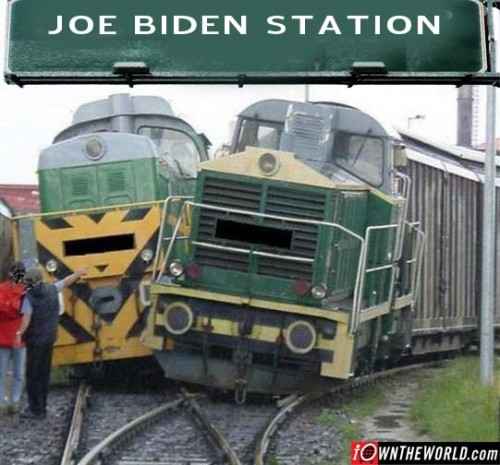All 12 railroad unions vote individually to ratify their contracts, unless congress intervenes and imposes a contract which forces all to abide. The railroad unions representing a majority of the railroad workers remain in dispute with the currently proposed contract with no resolution in sight and a potential labor union strike looming on December 9th.
 If one union within the collective group strikes, all of the unions — which represent more than 115,000 rail workers — would almost certainly join in solidarity, triggering an industry-wide freight rail work stoppage.
If one union within the collective group strikes, all of the unions — which represent more than 115,000 rail workers — would almost certainly join in solidarity, triggering an industry-wide freight rail work stoppage.
With the unions at an impasse over sick pay, Joe Biden has asked congress to intervene and impose a contract based on the terms of an earlier agreement.
(White House) – I am calling on Congress to pass legislation immediately to adopt the Tentative Agreement between railroad workers and operators – without any modifications or delay – to avert a potentially crippling national rail shutdown.
This agreement was approved by labor and management negotiators in September. On the day that it was announced, labor leaders, business leaders, and elected officials all hailed it as a fair resolution of the dispute between the hard-working men and women of the rail freight unions and the companies in that industry.
The deal provides a historic 24% pay raise for rail workers. It provides improved health care benefits. And it provides the ability of operating craft workers to take unscheduled leave for medical needs. Since that time, the majority of the unions in the industry have voted to approve the deal.
During the ratification votes, the Secretaries of Labor, Agriculture, and Transportation have been in regular touch with labor leaders and management. They believe that there is no path to resolve the dispute at the bargaining table and have recommended that we seek Congressional action.
Let me be clear: a rail shutdown would devastate our economy. Without freight rail, many U.S. industries would shut down. My economic advisors report that as many as 765,000 Americans – many union workers themselves – could be put out of work in the first two weeks alone. Communities could lose access to chemicals necessary to ensure clean drinking water. Farms and ranches across the country could be unable to feed their livestock.
As a proud pro-labor President, I am reluctant to override the ratification procedures and the views of those who voted against the agreement. But in this case – where the economic impact of a shutdown would hurt millions of other working people and families – I believe Congress must use its powers to adopt this deal.
Some in Congress want to modify the deal to either improve it for labor or for management. However well-intentioned, any changes would risk delay and a debilitating shutdown. The agreement was reached in good faith by both sides. (read more)
A national freight stoppage would be bad for the entire transportation sector. Moving oil, coal, ethanol and derivatives needed for diesel transport would be almost impossible with a freight railroad shut down. Congress has needed to intervene in this contract process several times before.
Nancy Pelosi released the following statement:
[…] “This week, the House will take up a bill adopting the Tentative Agreement – with no poison pills or changes to the negotiated terms – and send it to the Senate. It is my hope that this necessary, strike-averting legislation will earn a strongly bipartisan vote, giving America’s families confidence in our commitment to protecting their financial futures.”

